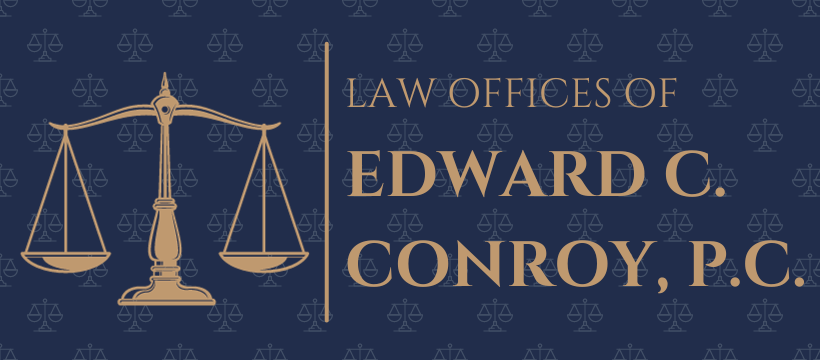Who would raise your children if you couldn’t
If you have young children, you should choose a personal guardian — someone to raise them in the highly unlikely event you can’t.
If your children are young, you’ve probably thought about who would raise them if for some reason you and the other parent couldn’t. It’s not an easy thing to consider. But you can make some simple arrangements now that will allay some of your fears, knowing that in the extremely unlikely event you can’t raise your kids, they will be well cared for.
All you need to do is use your will to name the person you want to be the “personal guardian” of your children if one is ever needed. Then, if a court ever needs to step in and appoint a guardian, the judge will appoint the person you nominated in your will unless, for some reason, it is not in the best interests of your children.
If you don’t name a guardian in your will, anyone who is interested can ask for the position. The judge then must decide, without the benefit of your opinion, who will do the best job of raising your kids.
Naming a Personal Guardian
You should name one personal guardian (and one alternate, in case your first choice can’t serve) for each of your children. Legally, you may name co-guardians, but it’s not a good idea because of the possibility that the co-guardians will later disagree or go separate ways.
Here are some factors you might want to consider when choosing a personal guardian:
•Is the prospective guardian old enough? (He or she must be an adult — 18 years old in most states.)
•Does your choice have a genuine concern for your children’s welfare?
•Is your choice physically able to handle the job?
•Does he or she have the time?
•Does he or she have kids of an age close to that of your children?
•Can you provide enough assets to raise the children? If not, can your prospective guardian afford to bring
them up? •Does the guardian share your moral beliefs?
•Would your children have to move?
If you’re having a hard time choosing someone, take some time to talk with the people you’re considering. One or more of your candidates may not be willing or able to accept the responsibility, or their feelings about acting as guardian may help you decide.
If You and the Other Parent Can’t Agree
When you and your child’s other parent make your wills, you should name the same person as personal guardian. If you don’t agree on whom to name, a court fight could ensue if both of you die while the child is still a minor. Faced with conflicting wishes, a judge would have to make a choice based on the evidence of what’s in the best interests of your child.
Again, talk with the people you’d each like to name. Candid discussions with your potential guardians may bring new information to light and help you reach an agreement.
Choosing Different Guardians for Different Children
Most people want their children to stay together; if you do, name the same personal guardian for all of your kids.
You can, however, name different personal guardians for different children. Parents may do this, for example, if their children are not close in age and have strong attachments to different adults outside of the immediate family. For instance, one child may spend a lot of time with a grandparent while another child may be close to an aunt and uncle. In a second or third marriage, a child from an earlier marriage may be close to a different adult than a child from the current marriage. In every situation, you want to choose the personal guardian you believe would be best able to care for each child.
Choosing a Different Person to Watch the Checkbook
Some parents name one person to be the children’s personal guardian and a different person to look after financial matters. Often this is because the person who would be the best surrogate parent would not be the best person to handle the money.
For example, you might feel that your brother-in-law would provide the most stable, loving home for your kids, but not have much faith in his abilities as a financial manager. Perhaps you have a close friend who cares about your kids and would be better at dealing with the economic aspects of bringing them up. Provided that your brother-in-law and your friend agree, you can name one as personal guardian and the other as custodian or trustee to manage your children’s inheritance.
Making Your Wishes Known
Most people have strong feelings about how they want their children to be raised. Your concerns may cover anything from religious teachings to what college you’d like a particular child to attend.
One option is to write a letter to the personal guardian, outlining thoughts and feelings about how the children should be raised. Try not to put in too much detail, though; it could cause your nominee much guilt and frustration later if unexpected circumstances thwart his or her attempts to carry out your plans to the letter.
The best guarantee of an upbringing you would approve of is simply to choose someone who knows you and your children well, and whom you trust to navigate life’s complexities on your children’s behalf.
If You Don’t Want the Other Parent to Raise Your Child
If one of a child’s parents dies, the other parent usually takes responsibility for raising the child. This, of course, is what most people want.
If you are separated or divorced, however, you may feel strongly that the child’s other parent shouldn’t have custody if something should happen to you. But a judge will grant custody to someone else only if the surviving parent:
•has legally abandoned the child by not providing for or visiting the child for an extended period, or
•is clearly unfit as a parent.
In most cases, it is difficult to prove that a parent is unfit, absent serious problems such as chronic drug or alcohol abuse, mental illness, or a history of child abuse.
If you honestly believe the other parent is incapable of caring for your children properly, or simply won’t assume the responsibility, you should write a letter explaining why, and attach it to your will. The judge may take it into account.
Judges are always required to act in the child’s best interests. In choosing a guardian, a judge commonly considers a number of factors; you may want to address them if you write a letter explaining your choice for personal guardian. Here are the big ones:
•the child’s preference, to the extent it can be ascertained
•who will provide the greatest stability and continuity of care
•who will best meet the child’s needs
•the relationships between the child and the adults being considered for guardian, and
•the moral fitness and conduct of the proposed guardians.

